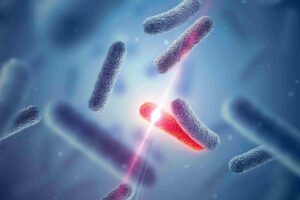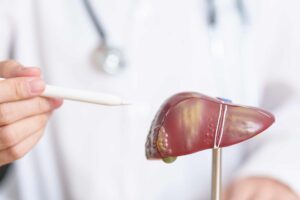What is already known
Several studies have shown that babies born by C-section have a different gut microbiota composition compared with those born vaginally — an alteration that could affect their disease risk later in life. These findings have led to practices such as vaginal seeding — during which a cotton gauze is soaked with vaginal fluid to transfer a mother’s vaginal bacteria to the mouth, nose or skin of her newborn. However, the safety and effect of vaginal seeding on babies born by C-section continues to be debated.
What this research adds
Researchers transferred bacteria from maternal vaginal fluids to C-section-born infants. Compared with controls, the guts of newborns who received vaginal microbiotas had more bacteria commonly found in vaginal fluid six weeks after birth. These infants also scored higher in tests aimed at measuring neurodevelopment at both three and six months of age, and their scores were comparable to those of vaginally born babies. No infants experienced severe adverse events after vaginal seeding.
Conclusions
The findings suggest that vaginal seeding is safe and may normalize the gut microbiota in infants born by C-section.
Babies born by C-section have a different gut microbiota composition compared with those born vaginally — an alteration that could affect their disease risk later in life. Now, a small clinical trial suggests that transferring bacteria from a mother’s vagina to her newborn can be beneficial to the early development of infants born by C-section.
The findings, published in Cell Host & Microbe, indicate that vaginal microbiota transfer is safe and may normalize the infants’ gut microbiota and neurodevelopment.
“We’re hoping this study can provide some leads to future research in this field. We want to know if vaginal microbiota seeding has the potential to reduce the risk of neurodevelopmental disorders in children, such as ADHD, ASD, and intellectual disabilities,” says senior investigator Yan He at Southern Medical University in Guangzhou, China.
Previous work has shown that the microbiotas of babies born by C-section are dominated by bacteria found on the mothers’ skin, in breastmilk and in the environment, whereas the microbiotas of vaginally born babies are made up of bacteria found in the mothers’ birth canals.
To reverse the microbiota alterations associated with C-section, some researchers have proposed practices such as vaginal seeding — during which a cotton gauze is soaked with vaginal fluid to transfer a mother’s vaginal bacteria to the mouth, nose or skin of her newborn. However, the safety and effect of vaginal seeding on babies born by C-section continues to be debated.
To determine whether the procedure benefits C-section-born babies, He and his team evaluated its effects on the neurodevelopment and the gut microbiota of 32 newborns delivered via C-section.
Microbial seeding
The researchers rubbed the newborns’ lips, skin and hands with a gauze soaked with their mothers’ vaginal fluids. As a control, another 36 newborns were rubbed with a gauze soaked with a mixture of salt and water.
Compared with controls, the guts of newborns who received vaginal microbiotas had more bacteria commonly found in vaginal fluid six weeks after birth. At six weeks, their microbiota also contained more mature microbiotas, similar to vaginally born babies. Escherichia bacteria were enriched in the mature microbiotas, the researchers found.
At three and six months of age, newborns who received their mothers’ microbiotas scored higher than controls in tests aimed at measuring neurodevelopment. Their scores were comparable to those of vaginally born babies, the team found.
Beneficial effects
Further analyses showed that babies who received their mothers’ microbiotas had higher stool levels of a metabolite called indolelactic acid compared with controls. Indolelactic acid is produced by Clostridium bacteria and its levels are typically low in people with Parkinson’s disease and Alzheimer’s disease.
“We don’t know exactly how early gut bacteria affect neurodevelopment, but there is some indirect evidence that shows some microbial metabolites are related to conditions,” He says.
No infants experienced severe adverse events after vaginal seeding, which suggests that the procedure is a safe intervention for restoring the gut microbiota of babies delivered by C-section and improving their neurodevelopment, the researchers say. However, they add, “the exact mechanisms mediating such beneficial effects require further research.”











